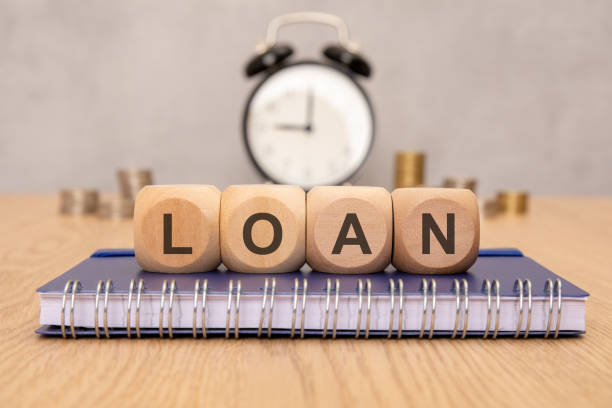
A £10,000 loan is a personal loan aimed at helping you meet large expenses which can be either planned or unforeseen. While qualifying for small emergency loans seems plain sailing, being accepted for £10,000 is way too challenging, and it is axiomatic that it is a case due to a large sum of borrowing involved.
Depending on the policy of the lender you are borrowing from, these loans can be secured or unsecured. In addition, your financial circumstances also come into play when deciding whether or not they should be collateralised.
Small emergency loans are aimed at ticking you over when you are in a tight spot. As they involve lending a paltry sum to be paid back in fell one swoop within a month, the approval criteria are not stringent. The decision is made on the basis of the financial details you provide; however, an affordability check must include a perusal of your credit report.
The approval criteria are stringent
In the event of borrowing a larger sum, your lender will expect you to submit a bank statement of at least six months in order to determine your repaying capacity. A £10,000 loan is an instalment loan to be settled over an extended period of time. It involves a greater risk of default in case the financial life of an applicant is turned upside down. In order to mitigate the risk involved in lending you money, a lender will cautiously and thoroughly scrutinise your financial documents and credit file into the bargain.
You must be able to demonstrate your capability to continue to make payments even if your financial situation becomes worse, which means not only are lenders keen to know whether your budget has the scope to make payments without compromising on your regular expenses, but they also want to confirm whether you have a backup payment plan if things do not go as planned.
How to get a £10,000 loan
You can apply for these loans from either banks or online lenders. The chances of acceptance are meagre in case your credit score is not up to scratch. While many financial institutions have broken the traditional shackles of unrelenting rules, you must meet the bare minimum credit rating criterion.
Fortunately, online lenders prove more amenable to accepting bad credit applications. Most of the people with bad credit histories end up borrowing money from lenders rather than banks. A £10,000 loan with bad credit and no guarantor is subject to a high interest rate. Since interest rates vary from lender to lender, it is recommended that you carefully ferret out the best available deal. Here are some ways to choose the most affordable loan:
- Understand your finances
Before delving into an application process, you should inspect the implications of your borrowing on your budget. Remember that loans are expensive and, when applied imprudently, may have far-reaching effects on your financial life. Experts have reported that many borrowers do not assimilate the extent to which their spending power will be affected as a result of borrowing beyond affordability, and therefore, they enjoin caution while employing these loans to meet expenses of any nature.
Do not forget that you are obligated to pay interest on top of the principal amount. It will be backbreaking to keep up with payments if your finances are not in order. No matter what, you should always be in a position to pay off your dues.
- Research
As every lender’s deal varies, borrowers are admonished not to jump at the first offer. A sensible borrower always compares interest rates, annual rates and associated charges in search of the most favourable deal.
The best way to do this is to receive prequalifying letters from multiple lenders. It will not affect your credit score as soft searches are made, but it includes a desultory attempt to give you a quote based on the superficial financial details you provide, and therefore, the actual rates will be far from prequalified rates. The key benefit to researching is knowing your prospects so that you can make a better decision.
- Have an alternative repayment plan
You should have a backup repayment plan because you can never guarantee that your financial situation will remain the same. Maybe you lose your job, or you come across some medical emergencies. Though lenders are deemed to lend you a helping hand in your hour of need, under no circumstances are they obligated to? If they feel inclined to provide unstinting support, the help will be ephemeral.
You should have an alternative plan to ensure you do not fall behind on payments. It can be income from a side gig or a part-time job. While some lenders may put you on a minimum payment plan, this strategy does not bring substantial relief because interest keeps accruing on the unpaid balance.
Other things to take into account
While taking out a £10,000 loan from new direct lenders in the UK, you should bear in mind the following factors:
- Your credit score should not be worse. The poorer the score, the lower the chances of approval. If any lender signs off on, you will be under the burden of hefty interest payments.
- Check your credit report to ensure no unidentified accounts are present. If so, dispute them. It will probably take a month to have them disappear from your credit file.
- Avoid having any outstanding debt at the time of taking out these loans. Credit card debt should also have been settled before putting in the application.
Wrapping up
In order to qualify for a £10,000 loan, you should research the market. Market inspection is the passport to ideal deals. In addition, you should understand their impact on your budget so you do not end up borrowing beyond your affordability. Last but not least, you should have a supplemental repayment plan in case your financial situation is impaired.

Jessica Rodz is the Senior Content Writer at Cashfacts. She has a long career in the field of content writing and editing. Jessica has the expertise in the UK lending marketplace where she has worked with 7 different lending organisations and acquired many responsibilities from preparing loan deals and writing blogs for their websites.
At Cashfacts, Jessica is managing a team of experienced loan experts and doing a major contribution in guiding the loan seekers via well-researched blogs. She has done graduation in Business (Finance) and now currently doing research papers on the UK financial sector.





